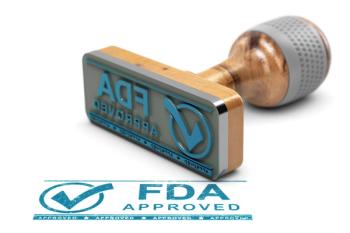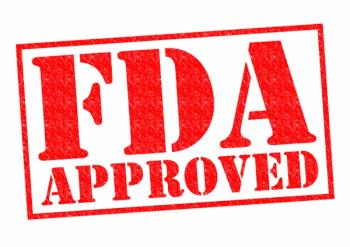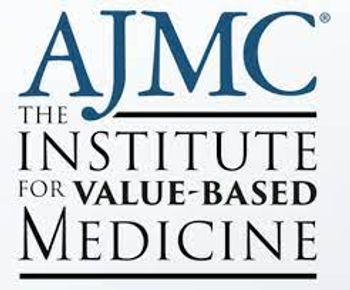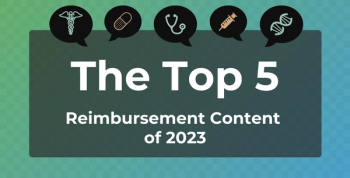
The majority of studies evaluating biosimilar-to-biosimilar switching were for rheumatoid arthritis, psoriatic arthritis, axial spondyloarthritis, and ankylosing spondylitis.

Laura Joszt, MA, is the vice president of content for the managed care and pharmacy brands at MJH Life Sciences®, which includes The American Journal of Managed Care®, Managed Healthcare Executive®, Pharmacy Times®, and Drug Topics®. She has been with MJH Life Sciences since 2011.
Laura has an MA in business and economic reporting from New York University. You can connect with Laura on LinkedIn or Twitter.

The majority of studies evaluating biosimilar-to-biosimilar switching were for rheumatoid arthritis, psoriatic arthritis, axial spondyloarthritis, and ankylosing spondylitis.

For most patients younger than age 60 with polycythemia vera (PV) who are not considered high risk, cytoreductive therapies are withheld despite being highly effective.

Interferons have been a major treatment for myeloproliferative neoplasms (MPNs) for decades, but emerging therapies are expanding the treatment armamentarium, explained Raajit Rampal, MD, PhD, of Memorial Sloan Kettering Cancer Center.

A history of depression was the most predictive factor for developing persistent joint pain among patients with psoriatic arthritis.

For more than a decade, certain high-value preventive care services have been covered at no cost to patients under the Affordable Care Act, but a current legal challenge has the coverage at risk.

It is possible, if you lay the groundwork, to provide patients with acute leukemias with aggressive and effective therapies, while still allowing them to maintain quality of life, explained Jennifer Vaughn, MD, of The Ohio State University Comprehensive Cancer Center – James Cancer Hospital.

New research highlights the factors that increase the likelihood that essential thrombocytopenia (ET), polycythemia vera (PV), and prefibrotic primary myelofibrosis (PrePMF) will evolve into overt myelofibrosis (MF).

The first medication for the treatment of nonalcoholic steatohepatitis (NASH) and liver fibrosis received accelerated approval. Previously, the only treatment available to patients was implementing lifestyle changes aimed at weight reduction.

Over the course of the last 20 years, high-deductible health plans (HDHPs) have undergone an evolution. Today’s plans, with more high-value services covered predeductible, can improve care for people with chronic diseases, said panelists at the 2024 Value-Based Insurance Design (V-BID) Summit.

Compared with matched controls, patients with myeloproliferative neoplasms (MPNs) had a higher risk of developing thrombosis, hemorrhage, and leukemic transformation, according to a longitudinal cohort study.

While dietary interventions do not significantly change the body composition of patients with rheumatoid arthritis (RA) and spondyloarthritis (SpA), they can reduce the risk of cardiovascular disease (CVD).

A review of research confirms that adolescents and young adults (AYA) with myeloproliferative neoplasms (MPN) face psychological burdens but the exact burden is poorly understood.

The FDA approval of nivolumab plus cisplatin and gemcitabine marks the first concurrent immunotherapy-chemotherapy combination for the population.

Wyost and Jubbonti were approved as interchangeable biosimilars for Xgeva and Prolia; however, there is no launch date yet pending litigation with the maker of the reference products.

For many patients with myeloproliferative neoplasms (MPNs) and myelodysplastic syndromes (MDS), their disease will be chronic, giving them a long-term cancer experience, said Jennifer Vaughn, MD, of The Ohio State University Comprehensive Cancer Center – James Cancer Hospital.

Two existing, well-validated patient-reported outcome (PRO) measures may be useful as a prognostic marker for mortality and assist with treatment selection for patients with cutaneous chronic graft-vs-host disease (GVHD).

At an Institute for Value-Based Medicine® event cohosted by The American Journal of Managed Care® and Optum, speakers emphasized that innovation is urgently needed in primary care delivery to address the broken US health care system.

The Democratic Women’s Caucus is urging insurers to comply with the Affordable Care Act (ACA) contraception requirement to cover birth control without cost sharing.

Results of a phase 1/2 trial show encouraging outcomes for patients with higher-risk myelodysplastic syndromes (MDS) and chronic myelomonocytic leukemia (CMML) treated with the fully oral regimen of venetoclax and decitabine plus cedazuridine.

The application is based on results of the phase 3 TROPION-Lung01 trial of datopotamab deruxtecan in nonsquamous non–small cell lung cancer (NSCLC), first presented at the 2023 European Society for Medical Oncology Congress.

Despite socioeconomic and biological differences that contribute to disparities between Black men and White men with prostate cancer, improved access has been shown to reduce the gaps, explained Jun Gong, MD, of Cedars Sinai.

Coverage from the Institute for Value-Based Medicine event with the University of Kansas Cancer Center in Kansas City, Kansas.

Experts explain how diabetes is diagnosed during pregnancy, how treatment differs from that of nonpregnant individuals, the importance of diabetes technology education, and how things change postpartum.

Aducanumab’s accelerated approval was controversial and insurance coverage of the expensive therapy was limited.

The expanded indication makes dupilumab the only approved treatment for eosinophilic esophagitis (EoE) in this age group.

Once treated with a one-size-fits-all approach, changes in the landscape for myasthenia gravis are allowing for more precise treatment of the disease.

Based on a comparison of prices for drugs up for Medicare price negotiations, there is a long way to go to reach the prices of 7 comparable countries.

While the first ustekinumab biosimilar, Wezlana, was approved in October 2023, a settlement with Johnson & Johnson (J&J) will keep it off the market until 2025, preventing competition, and causing purchasers to pay substantially more for the agent.

The most popular reimbursement content of 2023 included coverage of the shift from the Oncology Care Model to the Enhancing Oncology Model, reactions to the 2024 Medicare Physician Fee Schedule, and concerns around denial of services in Medicare Advantage plans.

Through interviews and contributed content, Strategic Alliance Partnerships provide insights into changes in health care delivery and medicine.

259 Prospect Plains Rd, Bldg H
Cranbury, NJ 08512
© 2025 MJH Life Sciences®
All rights reserved.
